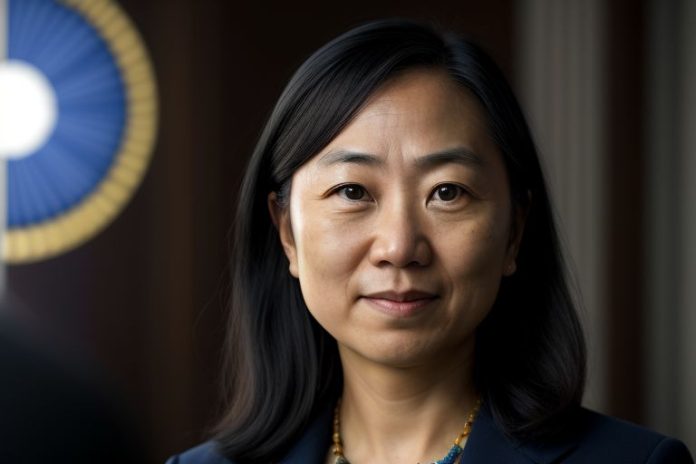Ugandan climate activist Vanessa Nakate has won the 2024 Nobel Peace Prize for her hard work to increase awareness of climate change and its effects on poorer countries, the Norwegian Nobel Committee said Tuesday. Nakate becomes the youngest recipient of the prestigious award at 27, as youth led climate activism is having added impact on the global stage.
She started activism in 2018 inspired by Greta Thunberg’s school strikes, which Nakate has become a powerful voice for where a lack of climate justice is a reality: African nations are most vulnerable to climate change but bear the least responsibility for the world’s emissions. Issues of poverty, gender equality and education have been my areas of climate change work.
She was praised by the Nobel Committee for her ‘exceptional leadership’ in getting young people across the globe to go out and demand urgent action on climate change and for bringing the effects of the often forgotten climate change impacts in developing countries to the fore, the Nobel Committee said. Nakate’s efforts, said Committee Chair Berit Reiss-Andersen, have transformed global conversation on climate change and ensure the voices of people affected by climate change worst are heard and taken into account.
Nakate’s path to the Nobel laureate status began from solitary protests outside the Ugandan Parliament to press for action on climate change. Soon, she became the first Zimbabwean, and one of the few African personalities, to attract global attention for her fiery speeches and criticism of how the media tends to remove or exclude African activists from readings of climate change.
In 2020, Nakate started the Rise Up Movement, which seeks to amplify African activists’ voices on climate and bring climate resilient projects to schools within Uganda. She has expanded her work to campaigns raising attention to climate education, reforestation projects, and promoting clean energy transitions in under developed countries.
Nakate, who heard about the award, was both happy and burdened. It is not just for me, but for any young person who has ever spoken out for climate justice, she added. This is a call to the world leaders to listen to the science, to listen to the voices of those suffering the most from the devastating consequences of climate change, he said.
The choice to honour a climate activist with the Peace Prize for the second time in as many years (after the joint award to Al Gore and the Intergovernmental Panel on Climate Change in 2007) is a sign of rising clamour in recognising climate change as a serious threat to global peace and security. It also recognizes the importance of grassroots activism in advancing policy and raising awareness in the public.
United Nations Secretary General António Guterres spoke on Monday, welcome the announcement, saying Vanessa Nakate is the moral voice of a generation that will be living with the consequences of our actions today. By recognising her, the Nobel Committee sends a clear message about the urgency of climate action.
Environmental organisations and fellow climate activists have been enthusiastic about the award. Nakate is a true inspiration and a powerful force for change, said Greta Thurnberg, widely considered a potential Nobel laureate herself; she congratulated Nakate.
But some critics have also raised questions about whether climate activism has traditionally been part of the Peace Prize’s remit. The Nobel Committee responded to that in saying that climate change and conflict are linked, and that environmental degradation and resource scarcity can make tensions worse and lead to new security challenges.
Nakate has been awarded a gold medal and diploma and a monetary prize of 11 million Swedish kronor (about $1 million) as part of her Nobel Peace Prize. The prize money would be used, she has said, to expand her climate education initiatives and provide smaller grants to grassroots environmental projects across Africa.
Nakate’s recognition is at a pivotal moment as the world navigates greater and graver climate impacts that rule out meeting goals of the Paris Agreement. The award is sure to attract renewed focus on what counts as climate action today, namely supporting developing nations to transition to sustainable economies that will serve as clean growth engines for the global economy.
Ahead of delivering her Nobel lecture in Oslo next month, the world will watch to see what this young activist does with her heightened platform to make the case for meaningful change in the battle against climate change. That story of someone who started alone but is now a Nobel Peace Prize laureate, is such a nice reminder that one voice, though, can make a difference.

